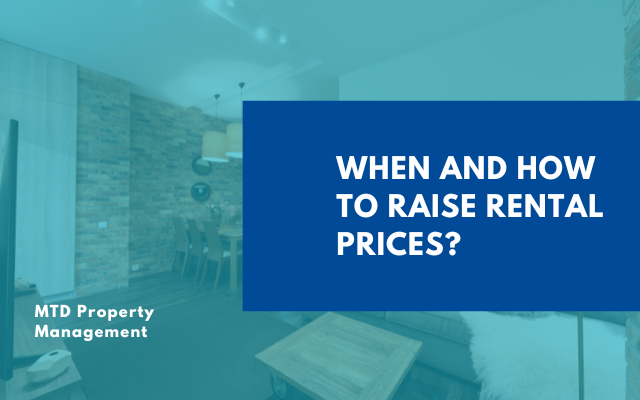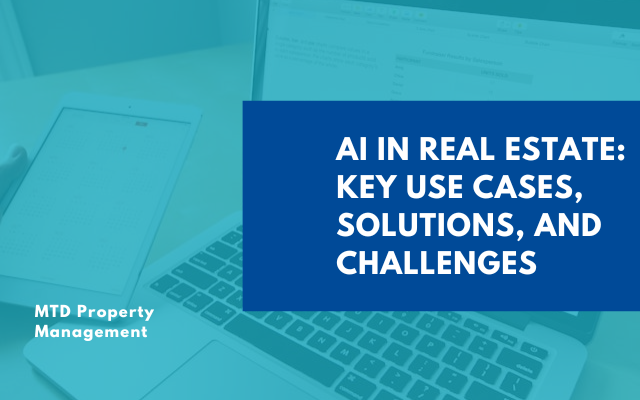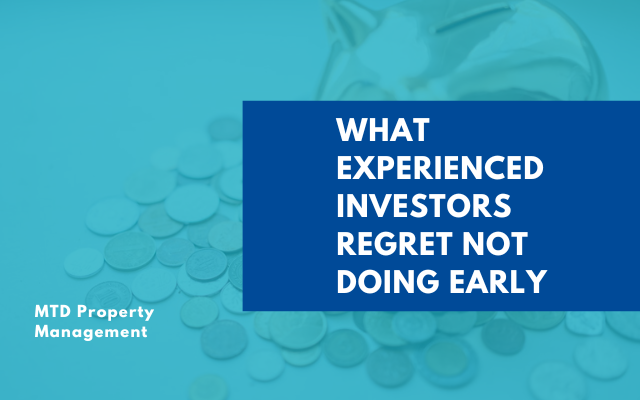
Are you wondering when and how to raise rental prices for your properties? It's a common concern among landlords seeking to balance fair pricing with maximizing returns on their investments. Understanding the optimal timing and approach to adjusting rental rates can significantly impact your bottom line and tenant satisfaction.
In this article, we'll delve into the factors that signal it's time for a rental price increase and strategies to execute the adjustment smoothly. Whether you're a seasoned landlord or new to the game, mastering this aspect of property management can be key to your financial success and maintaining positive landlord-tenant relationships. Keep reading this article to learn more!
Determining the Right Time to Raise Rental Prices
Knowing when to raise rental prices is crucial for landlords to maintain profitability and keep up with market trends. Several factors signal the need for a rental price increase:
Market Conditions
Keep a close eye on the dynamics of your local rental market. Factors such as vacancy rates, demand from prospective tenants, and the availability of similar rental properties in your area can greatly influence the optimal timing for a rental price increase.
If you notice a trend of decreasing vacancy rates or increasing demand for rental properties, it might indicate that the market can support higher rental prices. Conversely, if there's an oversupply of rental units or a decrease in demand, it might be prudent to hold off on raising prices until market conditions improve.

Cost of Living
The cost of living in your area directly impacts the financial considerations of both landlords and tenants. As the cost of goods and services rises over time due to inflation and other economic factors, landlords may need to adjust rental prices to keep pace with these changes.
Additionally, landlords should factor in their own expenses, including property taxes, insurance premiums, maintenance costs, and any mortgage payments, when determining whether a rental price increase is warranted.
Property Upgrades
Investments in property improvements and upgrades can enhance the value of rental units and justify higher rental prices. Whether it's renovating kitchens and bathrooms, upgrading appliances, installing energy-efficient features, or adding amenities like a fitness center or community lounge, these enhancements can make your property more attractive to prospective tenants and justify a higher rental price.
When considering a rental price increase based on property upgrades, it's important to weigh the upfront costs of the improvements against the potential long-term benefits in terms of increased rental income and property value.
Lease Renewal
Lease renewal periods provide an opportune time to reassess rental rates. As leases approach their expiration dates, landlords have the opportunity to evaluate whether the current rental price aligns with market conditions and the property's value.

If tenants express interest in renewing their lease, this presents an excellent opportunity to discuss potential adjustments to the rental price. Landlords can use this time to communicate openly with tenants about any changes in expenses, property improvements, or market trends that justify a rental price increase.
Tenant Turnover
When tenants vacate a rental property, landlords have the chance to reassess the rental price based on the property's condition and market demand. If the previous tenant was paying below-market rent or if the property has undergone significant upgrades since the last lease agreement, landlords may consider adjusting the rental price to reflect these changes.
However, it's essential to strike a balance between maximizing rental income and minimizing vacancy periods. Conducting market research, evaluating the property's condition, and considering feedback from prospective tenants can help landlords determine an appropriate rental price that attracts quality tenants while ensuring a favorable return on investment.
6 Strategies to Increase Rental Prices While Retaining Tenants
Here are seven tips for raising rental prices without losing tenants:
Communicate Transparently
Open and honest communication with tenants is key when implementing a rental price increase. Clearly explain the reasons behind the adjustment, such as rising property expenses, market trends, or property improvements. Address any concerns or questions tenants may have and emphasize your commitment to maintaining a fair and mutually beneficial landlord-tenant relationship.

Gradual Increases
Consider implementing gradual rental price increases over time rather than a sudden large hike. Incremental adjustments spread out over several lease renewal cycles are less likely to cause financial strain for tenants and are generally more palatable. This approach also provides tenants with predictability and allows them to plan for any changes in their housing expenses.
Offer Value-Added Services
Introduce additional services or amenities to justify a rental price increase. This could include upgrades to common areas, landscaping improvements, enhanced security measures, or the addition of new appliances or utilities. By enhancing the overall quality of the rental experience, tenants may be more willing to accept a higher rental price.
Renegotiate Lease Terms
When renewing leases agreements, consider negotiating other terms besides the rental price to offset any increases. For example, offer longer lease terms, flexible payment options, or improvements to the rental unit itself. By providing added value or flexibility, tenants may be more accepting of a moderate rental price increase.
Provide Incentives
Offer incentives to encourage tenants to accept the rental price increase. This could include discounts for early rent payments, referral bonuses for bringing in new tenants, or complimentary services such as professional cleaning or maintenance. By sweetening the deal, tenants may be more inclined to accept the higher rent.
Provide Notice in Advance
Give tenants ample notice of any upcoming rental price increases, as required by local laws and lease agreements. This allows tenants time to adjust their budgets and consider their housing options. Providing advance notice also demonstrates respect for tenants' financial circumstances and fosters goodwill during the rental price adjustment process.
Wrapping Up
In conclusion, determining when and how to raise rental prices requires a strategic approach that considers market dynamics, property upgrades, and tenant relationships. By communicating transparently, implementing gradual increases, and offering value-added services, landlords can navigate price adjustments effectively while maintaining tenant satisfaction.
Seeking guidance from experienced property management firms like
MTD Property Management can provide valuable insights and support throughout this process. Their expertise in market analysis and property management strategies can help landlords make informed decisions that optimize rental income and property performance without sacrificing tenant retention.









